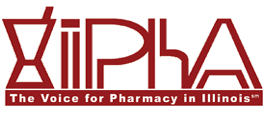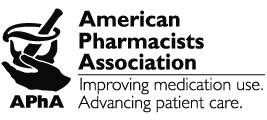Recent Blog Posts
How Managing the Pain of Patients Can Place the License of Nurse Practitioners at Risk
 Opioid abuse and the abuse of other prescription drugs are at an all-time high in the United States. Pill mills are among the major sources of these drugs. As a result, federal and state agencies, as well as licensing boards have started cracking down on the prescribing of pain medications. In fact, facilities that work with the chronically ill are facing intense scrutiny, as are advanced practice registered nurses since they work under prescriptive delegation. This extra attention, though not always warranted, places the licensing status of nurses at risk. Learn more about the investigation process and how to protect your nursing license with help from the following information.
Opioid abuse and the abuse of other prescription drugs are at an all-time high in the United States. Pill mills are among the major sources of these drugs. As a result, federal and state agencies, as well as licensing boards have started cracking down on the prescribing of pain medications. In fact, facilities that work with the chronically ill are facing intense scrutiny, as are advanced practice registered nurses since they work under prescriptive delegation. This extra attention, though not always warranted, places the licensing status of nurses at risk. Learn more about the investigation process and how to protect your nursing license with help from the following information.
Investigations Can Be More Like Fishing Expeditions
Investigations for matters relating to prescriptive authority or the “excessive” writing of pain prescriptions may be closed if the Illinois Board of Nursing lacks evidence. Alternatively, the investigation could go another way. Something you say could be misinterpreted as evidence in a prescription abuse case, or the investigation could turn into a fishing expedition. The investigator might start looking for any sort of infraction. He or she could even use what seems like an innocent conversation to gather evidence against you for a matter completely unrelated to the initial query. This is why it is so critical that you understand the investigative process, the risk to your nursing license, and how to protect it.
The Federation of State Medical Boards: What It Is and Why Physicians Should Care
 Most Illinois physicians are familiar with the Illinois Medical Board. It is where they obtained licensing status, and it is a constant concern to their practice. However, fewer people—including some doctors— know about the Federation of State Medical Boards (FSMB) and the role it plays in their lives. Learn what it is and why it is important with help from the following information.
Most Illinois physicians are familiar with the Illinois Medical Board. It is where they obtained licensing status, and it is a constant concern to their practice. However, fewer people—including some doctors— know about the Federation of State Medical Boards (FSMB) and the role it plays in their lives. Learn what it is and why it is important with help from the following information.
The Federation of State Medical Boards
Each state has its own licensing board, and the Federation of State Medical Boards ties them all together. It represents the 70 medical boards in the United States and its territories, including the District of Columbia. It offers policies, education, programs, and additional services to the state boards so that they can function effectively. The FSMB also enables state-to-state sharing of physician information. By far, that sharing is likely the most concerning issue for physicians.
Three Tips Regarding Social Media Use for Medical Professionals
 Social media has dramatically changed the way people interact with one another, and it has become a large part of life for many people. In fact, a recent study found that about 244 million Americans—about two-thirds of the entire population!—use some type of social media. Many professionals, including lawyers, accountants, and consultants, maintain various social media accounts, as do many doctors, psychologists, dentists, and other healthcare professionals. In light of modern privacy laws, however, medical professionals must be sure that their social media posting remains ethical and compliant with the standards that apply to such individuals.
Social media has dramatically changed the way people interact with one another, and it has become a large part of life for many people. In fact, a recent study found that about 244 million Americans—about two-thirds of the entire population!—use some type of social media. Many professionals, including lawyers, accountants, and consultants, maintain various social media accounts, as do many doctors, psychologists, dentists, and other healthcare professionals. In light of modern privacy laws, however, medical professionals must be sure that their social media posting remains ethical and compliant with the standards that apply to such individuals.
Privacy and Ethics
A healthcare professional is required to follow a variety of privacy laws, the most notable of which is the Health Insurance Portability Act—more commonly known as HIPAA. While there are many elements to HIPAA, one of the law’s primary functions is to ensure that patient’s personal and healthcare information is well protected. Unfortunately, not all medical professionals are as careful on social media as they should be, and sometimes, a doctor or nurse might post something that violates HIPAA, leading to the possibility of action from the state licensing board.
Reasons You Could Lose Your Hospital Privileges That Have Nothing to Do With Patient Care
 By their very nature, most physicians—including Medical Doctors (M.D.s) and Doctors of Osteopathic Medicine (D.O.s)—tend to have an independent decision-making spirit. While they are also generally very intelligent and dedicated to their patients, the responsibilities that come with gaining admitting and practicing privileges at a particular hospital can sometimes seem to conflict with a doctor’s sense of independence.
By their very nature, most physicians—including Medical Doctors (M.D.s) and Doctors of Osteopathic Medicine (D.O.s)—tend to have an independent decision-making spirit. While they are also generally very intelligent and dedicated to their patients, the responsibilities that come with gaining admitting and practicing privileges at a particular hospital can sometimes seem to conflict with a doctor’s sense of independence.
In addition to standards of care, hospital privileges also involve collegial, social, and legal elements that are more complicated than just taking care of patients. A physician who does not live up to all of a hospital’s expectations could quickly find that he or she is in danger of losing membership on the hospital’s medical staff.
Avoid These Types of Behaviors
It is understandable that concerns over the level of care that a physician provides could lead to the possible suspension or termination of the doctor’s hospital privileges. Such concerns could pertain to the doctor’s bedside manner, the failure to seek approval before trying unorthodox treatments, or not reaching out to specialists or consultants for questions outside of the physician’s area of specialty. Repeated incidents could become problematic and lead to the hospital suspending your privileges.
Billing Practices That Could Lead to Losing Your Medicare Enrollment
 According to the Centers for Medicare & Medicaid Services (CMS), there are currently more than 60 million Americans who are enrolled as Medicare beneficiaries. This number includes individuals enrolled in “original” Medicare as well as in Medicare Advantage plans with private insurers. In order to be able to serve this large portion of the population, a medical provider must enroll as a Medicare provider and keep that enrollment in good standing. This means the provider must meet all of the requirements set forth by CMS and avoid behaviors that could lead to a revocation of the provider’s Medicare status.
According to the Centers for Medicare & Medicaid Services (CMS), there are currently more than 60 million Americans who are enrolled as Medicare beneficiaries. This number includes individuals enrolled in “original” Medicare as well as in Medicare Advantage plans with private insurers. In order to be able to serve this large portion of the population, a medical provider must enroll as a Medicare provider and keep that enrollment in good standing. This means the provider must meet all of the requirements set forth by CMS and avoid behaviors that could lead to a revocation of the provider’s Medicare status.
Revocation of Medicare Enrollment
Under §424.535 of the Code of Federal Regulations, there are many different reasons for which a provider could have his or her Medicare enrollment status revoked. They include noncompliance with enrollment requirements, causing harm to patients, being convicted of certain felonies, improper medication prescribing practices, and failing to comply with CMS reporting requirements, among many others.
What to Do If Your Practice Is Under Investigation by the DEA
 Have you recently learned that your medical practice or pharmacy is being audited or investigated by the U.S. Drug Enforcement Agency (DEA)? You might have discovered this information by chance or have been informed directly by a DEA agent. Either way, a DEA investigation can be frightening, especially if your livelihood depends on keeping your DEA registration and your professional license. The good news is that our firm is equipped to help healthcare professionals of all types in all types of DEA-related matters.
Have you recently learned that your medical practice or pharmacy is being audited or investigated by the U.S. Drug Enforcement Agency (DEA)? You might have discovered this information by chance or have been informed directly by a DEA agent. Either way, a DEA investigation can be frightening, especially if your livelihood depends on keeping your DEA registration and your professional license. The good news is that our firm is equipped to help healthcare professionals of all types in all types of DEA-related matters.
DEA Tasked With Helping to Manage the Opioid Crisis
Over the last few years, the misuse and abuse of opioid drugs have become major problems throughout the country. In fact, the situation is serious enough that the acting U.S. Secretary of Health and Human Services declared a public health emergency in 2017, and health officials began using the word “epidemic” to describe the widespread nature of the crisis. At the time, the Centers for Disease Control and Prevention estimated that 91 per day were dying from opioid overdoses.
Can the COVID-19 Pandemic Affect an Illinois Nursing Home License?
 Because of their important role in providing for the care and health of their patients, Illinois nursing homes are subject to oversight from both the Illinois Department of Public Health (IDPH) and the federal Centers for Medicare and Medicaid Services (CMS) to ensure they are in compliance with regulations. With the additional risks that the COVID-19 pandemic poses for nursing home residents, additional guidelines have been put in place to promote their safety. Now more than ever, it is important for nursing homes to take the necessary measures to avoid violations that could impact their licensure.
Because of their important role in providing for the care and health of their patients, Illinois nursing homes are subject to oversight from both the Illinois Department of Public Health (IDPH) and the federal Centers for Medicare and Medicaid Services (CMS) to ensure they are in compliance with regulations. With the additional risks that the COVID-19 pandemic poses for nursing home residents, additional guidelines have been put in place to promote their safety. Now more than ever, it is important for nursing homes to take the necessary measures to avoid violations that could impact their licensure.
Guidelines for Illinois Nursing Homes During COVID-19
Based on guidance from the Centers for Disease Control, CMS has issued guidelines for the safe operation of nursing homes and other long-term care facilities throughout the United States. For example, nursing homes must:
Can a Psychologist Be Sued For Malpractice in Illinois?
 Psychologists provide an important service for their patients, who rely on their expertise for therapy and treatment of a wide range of mental and behavioral health issues. Psychologists who breach their patients’ trust may face serious consequences, including the loss of their license. In some cases, they may even face medical malpractice lawsuits.
Psychologists provide an important service for their patients, who rely on their expertise for therapy and treatment of a wide range of mental and behavioral health issues. Psychologists who breach their patients’ trust may face serious consequences, including the loss of their license. In some cases, they may even face medical malpractice lawsuits.
What Is Medical Malpractice?
Medical malpractice occurs when a healthcare professional breaches his or her duty of care to a patient, resulting in the patient’s injury or harm. For physical healthcare providers, some of the most common forms of malpractice are surgical errors, improper medication or prescriptions, misdiagnosis, and misinterpretation of test results or patient history.
While psychologists may not have a medical degree, they do provide a form of healthcare, and prescribing psychologists are licensed to prescribe medical treatment. Therefore, they may face medical malpractice claims related to improper prescriptions, misdiagnoses, or failure to diagnose a mental health condition. According to the American Psychological Association (APA), some psychologists also face claims of malpractice due to emotional abuse or sexual misconduct with their clients.
How Has COVID-19 Affected Medical Licenses in Illinois?
 The global pandemic COVID-19 has hit the U.S. especially hard, with over 199,000 confirmed cases in Illinois alone. From the beginning, this virus has led to overfilled hospital beds and overworked medical professionals. With no vaccination in sight and a high demand for doctors, nurses, and other medical professionals, the U.S. has been forced to reevaluate their licensing procedures and state-by-state restrictions. It is common for states to adopt emergency licensing processes in response to natural disasters and their aftermath. Many states have followed this trend by enacting emergency-response licensure laws to allow volunteers from other states to practice their profession without being required to seek out licensure in that specific state.
The global pandemic COVID-19 has hit the U.S. especially hard, with over 199,000 confirmed cases in Illinois alone. From the beginning, this virus has led to overfilled hospital beds and overworked medical professionals. With no vaccination in sight and a high demand for doctors, nurses, and other medical professionals, the U.S. has been forced to reevaluate their licensing procedures and state-by-state restrictions. It is common for states to adopt emergency licensing processes in response to natural disasters and their aftermath. Many states have followed this trend by enacting emergency-response licensure laws to allow volunteers from other states to practice their profession without being required to seek out licensure in that specific state.
Uniform Emergency Volunteer Health Practitioner Act
The Uniform Emergency Volunteer Health Practitioner Act (UEVHPA) is legislation that was initially developed in 2006 and is being modeled by many states during the COVID-19 pandemic. This legislation allows any participating state, Illinois included, to recognize out-of-state medical licenses during a declared state emergency. All practitioners who wish to participate in this reciprocal-licensing program must register to do so.
Can I Work as a Nurse in Illinois If I am Licensed in Another State?
 It is fairly recognized that nursing school is not an easy path to take. While slightly less rigorous than medical school, those who wish to be Illinois nurses are still required to take intense courses aimed at preparing them for in-field work and the difficult exam, known as the NCLEX-RN, to become a registered nurse. This exam is a national, standardized test to ensure that future nurses are fully capable of taking care of patients and performing other medical duties.
It is fairly recognized that nursing school is not an easy path to take. While slightly less rigorous than medical school, those who wish to be Illinois nurses are still required to take intense courses aimed at preparing them for in-field work and the difficult exam, known as the NCLEX-RN, to become a registered nurse. This exam is a national, standardized test to ensure that future nurses are fully capable of taking care of patients and performing other medical duties.
Since many nursing students take their NCLEX exam coming out of college, they will typically receive nursing licensure in the state where they went to school. However, it is unlikely that these medical professionals will never move out of state. For those moving to Illinois, there is a particular process that they must follow to become an Illinois certified nurse.
Out-of-State Licensure
If a nurse moves from one state to another and still intends on working in this field, they will need to receive “licensure by endorsement” in the new state that they are moving to. In other words, out of state nurses must receive license verification and endorsement from the previous state(s) that they worked in. This includes the current state, the original state (if different), and any other state that the nurse has practiced over the past five years. Illinois requires nurses to provide their NCLEX results, either from the state of original licensure or the testing company. These endorsement candidates can be issued a temporary license to begin work while the paperwork is being processed.














